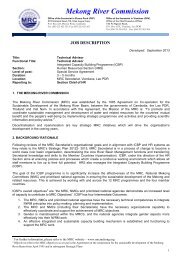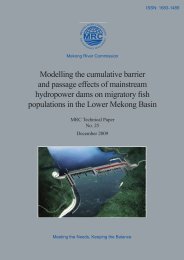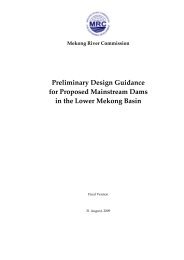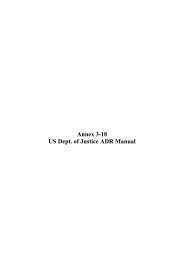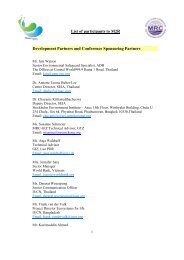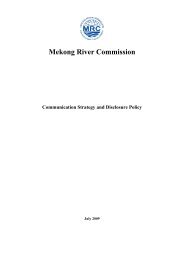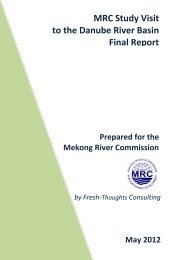Carriage, Handling and Storage of Dangerous Goods along
Carriage, Handling and Storage of Dangerous Goods along
Carriage, Handling and Storage of Dangerous Goods along
You also want an ePaper? Increase the reach of your titles
YUMPU automatically turns print PDFs into web optimized ePapers that Google loves.
2.3.4.6 Drug <strong>and</strong> Alcohol Policy<br />
RECOMMENDATION<br />
Port <strong>and</strong> terminal operators should develop a drug <strong>and</strong> alcohol policy.<br />
Challenge<br />
PORTS AND TERMINALS 39<br />
A number <strong>of</strong> ports <strong>and</strong> terminals included in the risk analysis did not have specific policy for drugs <strong>and</strong><br />
alcohol. Port/terminal operators should take drug <strong>and</strong> alcohol abuse as a serious matter <strong>and</strong> absolutely<br />
prohibit the use, sale or possession <strong>of</strong> alcohol or non-prescribed drugs while on the port/terminal<br />
premises. Port <strong>and</strong> terminal operators should reserve the right to dem<strong>and</strong> a drug or alcohol test <strong>of</strong><br />
any employee at any time or based upon reasonable suspicion. Reasonable suspicion includes, but is<br />
not limited to, physical evidence <strong>of</strong> use, involvement in an accident or a substantial drop-<strong>of</strong>f in work<br />
performance. Port <strong>and</strong> terminal operators should also caution against use <strong>of</strong> prescribed or over-thecounter<br />
medication which can affect the ability <strong>of</strong> personnel <strong>of</strong> performing their job properly <strong>and</strong> safely.<br />
References<br />
• Guidelines for the Control <strong>of</strong> Drugs <strong>and</strong> Alcohol Onboard Ship, OCIMF, June 1995.<br />
ACTIONS<br />
Technical <strong>and</strong> Management<br />
Ports <strong>and</strong> terminals should have a clearly written policy on drugs <strong>and</strong> alcohol abuse that is easily understood<br />
by all personnel. The policy should be clearly communicated to all personnel. Furthermore,<br />
to enforce their policy, companies should have rules <strong>of</strong> conduct <strong>and</strong> controls in place. Information<br />
should be provided to personnel regarding:<br />
• the effects <strong>of</strong> alcohol <strong>and</strong> other drugs on health, safety <strong>and</strong> work performance;<br />
• alcohol <strong>and</strong> other drugs <strong>and</strong> its retention in the blood stream;<br />
• the consequences for personnel who fail to comply with the drug <strong>and</strong> alcohol policy; <strong>and</strong><br />
• who to approach for assistance with an alcohol/drug problem.<br />
Port/terminal operators should be equipped with breathalysers <strong>and</strong> test equipment <strong>and</strong> regularly<br />
organise r<strong>and</strong>om screening/testing for alcohol <strong>and</strong> drugs to detect abuse in due time.<br />
Institutional <strong>and</strong> Capacity Building<br />
Relevant line agencies should define the maximum permissible blood alcohol content (BAC) to act as<br />
a legal reference point to control the use <strong>of</strong> alcohol. An awareness programme should be developed.<br />
Member Countries should establish regulations to measure the BAC <strong>of</strong> personnel in case <strong>of</strong> an<br />
accident/incident at a port or terminal, similar to the procedure following road accidents.



